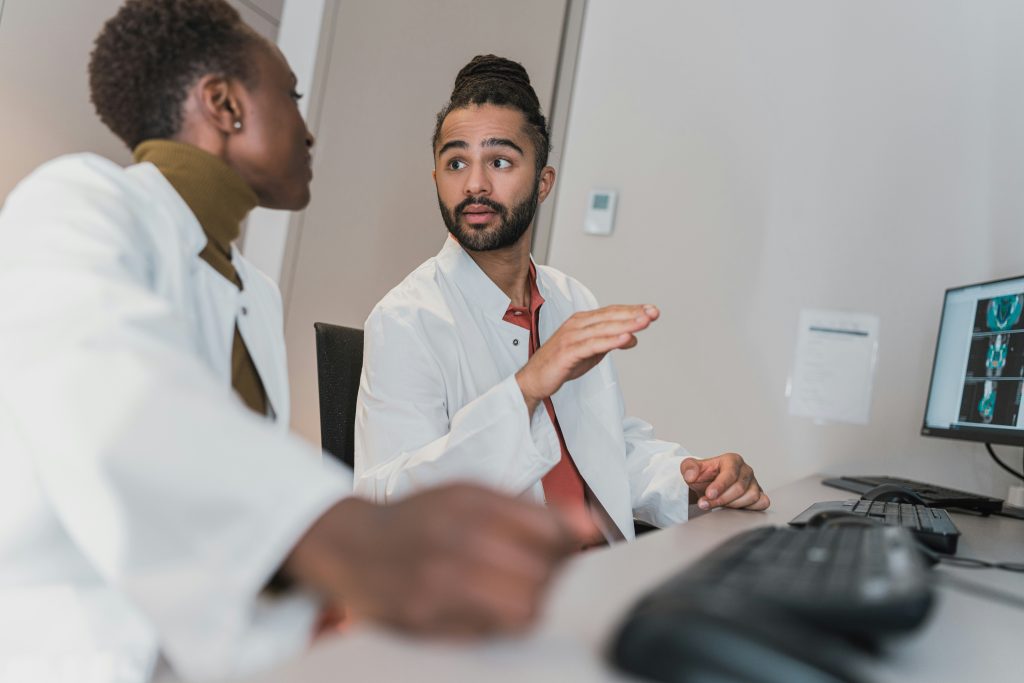Symptoms of Alcohol Poisoning and What to Do
In 2022, the number of alcohol-related deaths in England and Wales reached an all-time high. According to the Office for National Statistics, 7,423 alcohol-related deaths occurred in England and Wales during the year.
Alcohol poisoning, which manifests as symptoms like sluggish breathing, hypothermia, an irregular heartbeat, and unconsciousness, can be the result of consuming too much alcohol too quickly. It is hazardous and potentially fatal.
Let’s look at the causes and symptoms of alcohol poisoning while also explaining the various alcohol poisoning treatments.
Symptoms of Alcohol Poisoning
Learning the symptoms of acute alcohol poisoning can help you tell the difference between a drunk friend who has passed out and someone unconscious as a result of acute alcohol poisoning. Search for:
• Slow or irregular breathing (less than eight breaths per minute or more than 10 seconds between each breath)
• Symptoms may include clammy or blue-tinged skin and low body temperature (hypothermia)
• Confusion
• Loss of consciousness
• No gag reflex (possible choking hazard when vomiting)
• Seizures
• Slow heart rate
• Vomiting, mainly while unconscious
Remember, your friend does not need to exhibit all the symptoms to be at risk. If your friend cannot be awakened or is unconscious, they are in danger of dying.
Symptoms of alcohol poisoning are usually related to blood alcohol concentration (BAC), which is a measure of the amount of alcohol in your bloodstream. The higher the BAC, the more impaired you become.
Mild impairment (0.0–0.05% BAC): At this level, people may experience minor difficulties with speech, balance, memory, and attention. They may feel relaxed or sleepy.
Increased impairment (0.06–0.15%): People become more intoxicated at this point. They have problems with speech, coordination, and balance. Driving is severely impaired.
Severe impairment (0.16–0.30%): Driving is hazardous at this point, and people may exhibit alcohol poisoning symptoms such as blackouts, vomiting, and loss of consciousness.
Life-threatening (0.31-0.45%): Severe alcohol overdose symptoms are present at this level. This includes loss of consciousness, suppression of vital functions, and an increased risk of death.
In addition to the high risk of death, alcohol poisoning can cause irreversible brain damage. Other long-term consequences of heavy alcohol consumption include addiction, cancer, cirrhosis, liver disease, vitamin deficiencies, and mental health issues. It also raises the risk of unintentional injuries from falls, drowning, assault, and car accidents.
What should you do if you suspect someone has alcohol poisoning?
If you suspect someone has alcohol poisoning, don’t hesitate. Call 999 or 112 immediately, even if you’re not sure. Your quick response could save a life. Don’t worry about the legalconsequences; your friend’s well-being is the top priority.
Prepare to provide information to emergency personnel or the hospital, such as the type and amount of alcohol your friend consumed and when.
If you suspect someone has alcohol poisoning, don’t leave them alone. Stay with them, and try to keep them awake. If they’re unconscious, turn them on their side to prevent choking if they vomit. Your presence and care can make a difference.
If your friend is vomiting, try to keep them sitting upright and awake.
Please pay close attention to how they breathe. If they stop breathing, you should be prepared to perform CPR. If you don’t know how to perform CPR, look for someone who does.
Please do not give your friend coffee or place them in a cold shower. These methods do not mitigate the consequences of alcohol poisoning.

Causes of Alcohol Poisoning
Too much alcohol in your bloodstream causes the brain areas responsible for breathing, heart rate, and other vital life functions to shut down.
In other words, your friend who drank excessively may not simply be sleeping it off. If they are experiencing acute alcohol poisoning, their condition could progress to coma and even death if you do not intervene.
Alcohol poisoning harms the brain, blood vessels, and liver. Rapid fluid ingestion alters the fluid concentration in the body, which can disrupt fluid and electrolyte balance.
Alcohol poisoning can affect both children and adults. When it comes to children and possibly adults, your first thought may be to reach for the liquor cabinet but keep in mind that another household product containing alcohol, such as a cooking extract or medicinal tincture, could be to blame.
Risk Factors of Alcohol Poisoning
Certain factors raise the risk of alcohol poisoning, including:
• Body weight and size
• Alcohol use with other substances
• Overall health
• Alcohol consumption rate and quantity
• Tolerance level
• Recent food intake
People who binge drink are more likely to develop alcohol poisoning. Binge drinking is defined as consuming five or more alcoholic beverages (for men) or four or more drinks (for women) within two hours.
Treatment For Alcohol Poisoning
There is no way to reverse alcohol poisoning; medical treatment is critical to save the person’s life. The first step in treating someone with alcohol poisoning is to call 999 or 112 and keep them safe until help arrives.
Treatments for alcohol poisoning include the following:
ï IV fluids: Once at the hospital (or en route), a medical professional may administer intravenous (IV) fluids to replenish fluid lost through vomiting and to balance any fluid and electrolyte disruption caused by excessive alcohol consumption.
ï Oxygen: Oxygen may also be administered for respiratory support, especially if the person has irregular or slowed breathing.
ï Blood pressure medication can help to regulate any dips in blood pressure that the person may be experiencing.
ï Stomach pumping: A tube is inserted to remove alcohol from the stomach. This can help keep alcohol from being metabolised.
ï Hemodialysis is a procedure that filters blood through a dialysis machine. It can help to remove alcohol and its metabolites from the body quickly.
ï If the person is having seizures, they may need a short-term anticonvulsant medication to be administered to the person to stop seizures.
If someone gets alcohol poisoning, they will need time to recover. After receiving medical attention, they will continue to experience severe hangover symptoms until their condition improves.
A healthcare provider may also recommend that patients seek alcohol treatment or consult with a mental health professional or addiction treatment service. An individual may wish to seek treatment for alcoholism or another mental health issue, such as depression or anxiety.
A healthcare provider can make treatment recommendations, help with medical detox, and prescribe medications to alleviate cravings and withdrawal symptoms.
How To Prevent Alcohol Poisoning
You should be aware of the symptoms of alcohol poisoning as well as what you can do to avoid it.
Drink in moderation. If you intend to drink, keep it moderate to low. For women, that means a maximum of one drink per day and two for men.
Avoid drinking too quickly. Drinking too much too soon raises the risk of alcohol poisoning. Instead, focus on drinking slowly or switch to a non-alcoholic beverage.
Avoid drinking on an empty stomach. Eating before consuming alcohol can help to slow the rate at which it is absorbed.
Communicate: If you are concerned about someone you care about drinking excessively, talk to them about the dangers of alcohol, binge drinking, and alcohol poisoning.
Avoid combining alcohol and medications. If you are taking prescription medications, you should not consume alcohol. Dangerous drug interactions can occur, including an increased risk of alcohol poisoning with some substances. You should also exercise caution if you are using over-the-counter medications.
Be cautious. Only drink alcohol if you know what’s in it. Avoid leaving your drink unattended.
There is no way to eliminate the possibility of alcohol poisoning. The best way to reduce your risk is to limit your alcohol consumption or consider non-alcoholic beverages as an alternative.
Remember, if you’re trying to control your drinking, you’re probably already out of control!
Call Freephone at 0800 140 4044 for professional detox and therapy services for your alcoholism.
Freephone: 0800 140 4044
Local rate: 0300 330 3040
Contact us here to find out more

